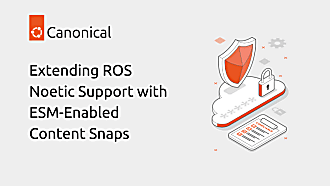cmoullec
on 24 April 2020
Ubuntu Core: a cybersecurity analysis
An independent evaluation of Ubuntu Core’s security capabilities

Manufacturers of Internet of Things (IoT) devices require an embedded operating system that is feature-rich, scalable, and — most importantly — secure. Built from the ground-up to meet these requirements, Ubuntu Core represents a comprehensive ecosystem for large-scale IoT deployments that solves many of the security challenges associated with traditional Linux distribution models — while also empowering developers with unprecedented flexibility and control.
This whitepaper from global cybersecurity experts, Rule4, provides an independent, third-party evaluation of Ubuntu Core’s security capabilities. Following a data-driven approach, all aspects received extensive testing to validate the strengths of its cybersecurity controls.
Read the report to learn about:
- The features and design tenets — such as application sandboxing — that make Ubuntu Core inherently secure out-of-the-box
- The case for adopting Ubuntu Core for IoT devices in light of this testing
- Rule4’s evaluation methodology and a summary of its results, which included no critical findings



